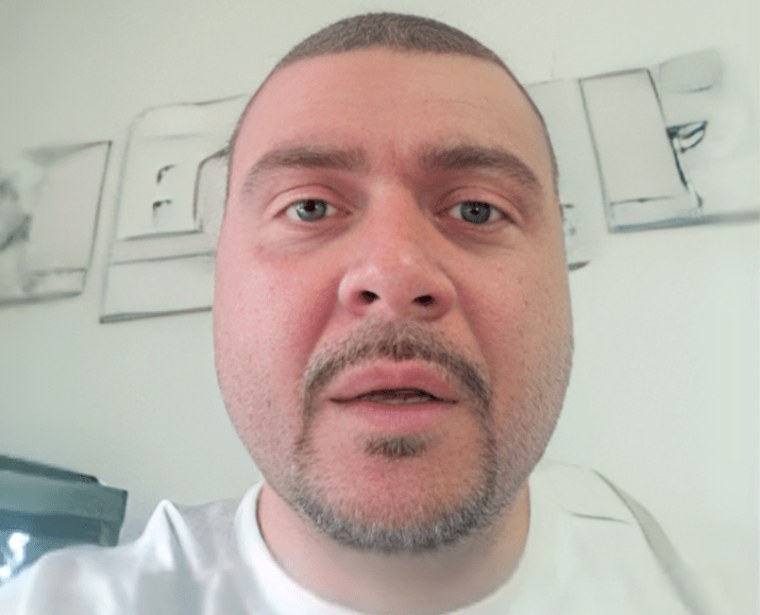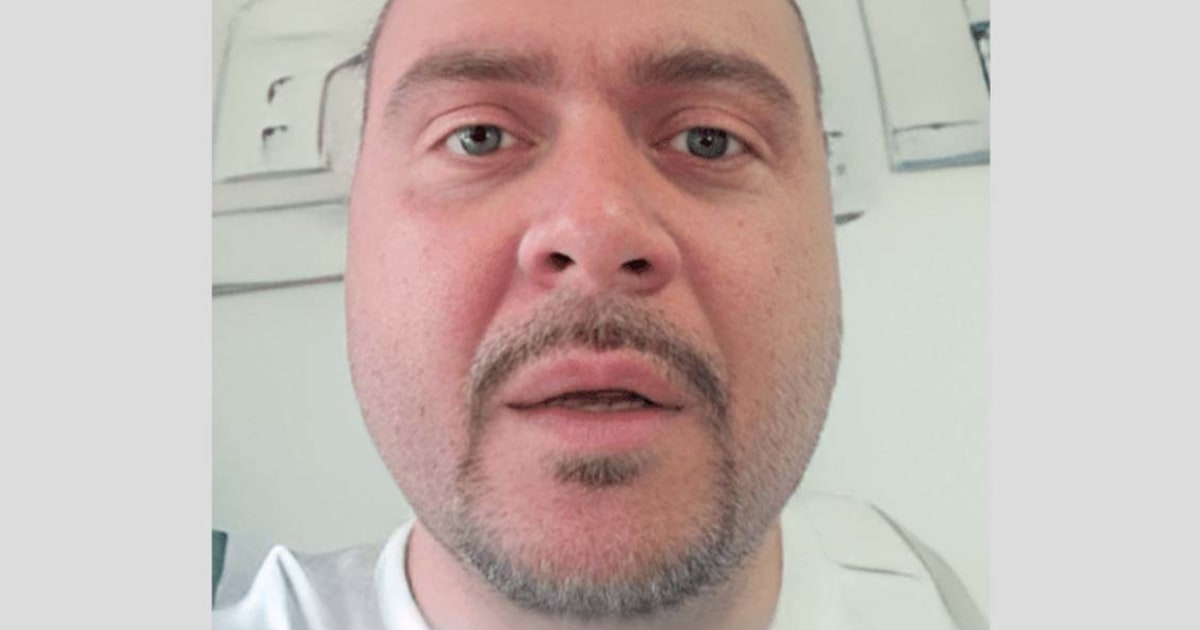After having spent 25 years in prison for murder, José Tinajero is now a free man. His conviction and that of Thomas Kelly, another man who was accused of the same crime, were overturned last week by a Chicago judge.
“Being free is a real challenge for me. My mom took me to a TJ Maxx store to shop, and I felt like everyone was looking at me. It was very uncomfortable. I felt like I was out of place. It’s hard to deal with this,” Tinajero, 45, said in an exclusive interview with Noticias Telemundo on Friday.
“I just want to spend time with my family, you know? They were always there for me. My mom, my daughter and now I have a granddaughter,” he said. “I have to make up for lost time with my daughter, because I was out of her life for 25 whole years and I have to make peace with her. My future is to focus on my family, and work, of course, to help support them.”

Although Tinajero’s conviction was overturned Wednesday, he remained incarcerated at the Kewanee Correctional Facility, about 150 miles southwest of Chicago, until Thursday afternoon, when he was able to return home and reunite with his loved ones.
“I was born here in Chicago, in the United States, and I was raised by a great mother who did everything she could for me. My father left us when I was very young, but my mother did a great job, and she has suffered a lot from all of this,” he said.
In 1999, Tinajero and Kelly were arrested in the murder of Daniel Garcia, who was beaten on Oct. 12, 1998, in an alley near Whipple and Armitage streets. Kelly and Tinajero, along with John Martinez, whose case was dismissed nearly a year ago, allege they were coerced into making false confessions by Reynaldo Guevara, who at the time was a Chicago police detective.
Guevara is accused of falsely incriminating dozens of men and women from the 1980s to the early 2000s. So far, 40 people have been exonerated in cases related to Guevara, who, in his court appearances, has repeatedly invoked the Fifth Amendment in relation to any allegations against him. He has never been charged.
According to an investigation WGN-TV published in October, Guevara, who retired in 2005, has been living in Texas.
Last year, an investigation by NBC Chicago concluded that the settlements for all the wrongful convictions the city of Chicago has paid since 2010 total more than $288 million, including cases related to Guevara.
In August 2022, Cook County State’s Attorney Kim Foxx announced an investigation into Guevara’s convictions from the 1980s and the 1990s, saying: “We can no longer uphold these convictions. We cannot retry these cases based on the evidence we have today.”
There are still about 32 lawsuits pending in court that have been filed by exonerated people who have accused Guevara of having fixed their murder cases through witness tampering, coerced confessions and more.
Joel Flaxman, Tinajero’s lawyer, said this was a very important case, “because it is one more step in correcting what I believe is one of the greatest injustices that has happened in Chicago; more than 40 people were wrongfully convicted in cases related to the same detective — let’s give these people justice and correct those mistakes.”
Noticias Telemundo requested comments on the Tinajero case and other convictions associated with Guevara that have been overturned. NBC News contacted attorneys for Guevara, the Cook County Prosecutor’s Office, the Chicago Police Department and the Civilian Office of Police Accountability, but it has not received any responses.
Guevara arrested Tinajero in 1999 during the investigations into the murder of Daniel García. In September 2001, a jury convicted Tinajero, who was sentenced to 40 years in prison. John Martinez and Thomas Kelly were also convicted in the Garcia case.
They have all been released.
The main evidence against Tinajero was his own statement and an eyewitness identification. Although Tinajero said in court that Guevara coerced him into making a false statement and although he requested the suppression of that statement, the court denied the motion, according to court papers reviewed by Noticias Telemundo.
“When they killed García, at that moment I was in my house. And I always said it, but they didn’t believe me,” Tinajero said.
According to court documents, Tinajero’s defense attorney challenged the eyewitness identification as unreliable “and a product of Detective Guevara’s undue influence,” but that did not prevent Tinajero’s conviction.
“What I can say is that adapting to prison, knowing that I was innocent, was the most difficult thing for me,” Tinajero said, who added that because of corruption in the justice system, “I had to serve 25 years in prison. … I’m not happy with that.”
Maurice Possley, a senior investigator for the National Registry of Exonerations, said Guevara’s case is one of the worst he has analyzed in recent years.
“When he became a homicide investigator, he began to incriminate people who he knew were bad actors or who he had a grudge against because perhaps they did not cooperate in his investigations,” Possley said. He cited an example of a woman who confessed to a crime she did not commit after Guevara told her he was going to take away her children.
“In my opinion, it shows the anarchy that a bad detective can unleash,” Possley said.
‘Time for a change’
“In case after case we see Chicago spend millions of dollars on outside lawyers to defend indefensible cases. And it’s time for a change. It’s time for the city to stop wasting its money on lawyers and spend money on compensating victims of truly egregious misconduct,” said Flaxman, Tinajero’s attorney.
As has happened with other people exonerated in cases related to Guevara, Tinajero and his legal team are evaluating options to sue the city of Chicago for the damages he has suffered over the last 25 years.
“I would like to see the justice system improve,” Tinajero said, “and I would also like to see the corrupt officers not only receive a pension and retire, but I would like to see them experience everything that I went through in prison.”
The National Registry of Exoneration databases show that in the cases of the nearly 3,500 people who have been exonerated of serious crimes in the U.S. since 1989, more than half are related to alleged police or prosecutorial misconduct. Experts say coerced confessions, withheld evidence, false testimony and other bad practices that contribute to wrongful convictions are often not punished.
“Sixty percent of the cases on the registry are people of color,” Possley said.
While in some studies Hispanics are a small number of those who are wrongly convicted, he thinks that does not correspond to the reality he has seen.
“In many cases they are underrepresented because, at the national level, there are states that classify people incorrectly. So they include them in categories like ‘white’ or ‘Black,’ but they don’t specify that they are Latino. That’s why you get the impression that the problem of wrongful convictions in the Hispanic community is low, but that is not the reality,” Possley said.
Tinajero is one of 395 Latino people who have been wrongfully convicted and exonerated since 1989, according to the National Registry of Exonerations.
For more from NBC Latino, sign up for our weekly newsletter.
